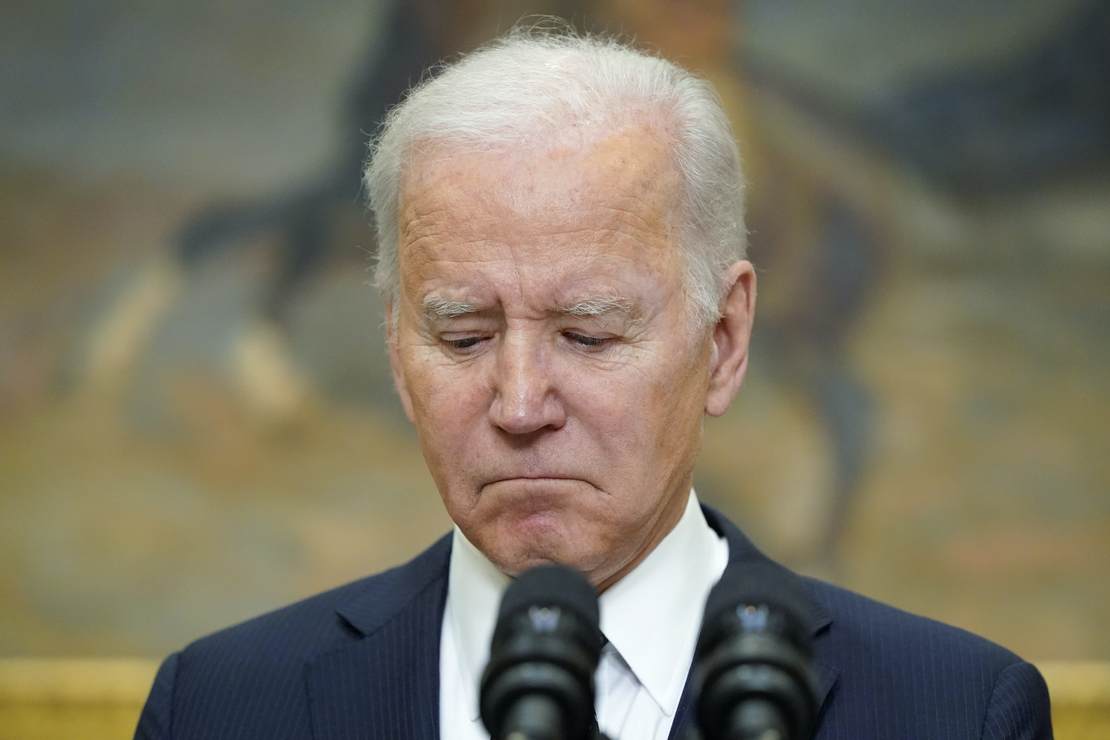
If Vladimir Putin hoped his propaganda outlets had shaped the political battleground for his war on Ukraine, he badly miscalculated on that, too. More than eight in ten support economic sanctions against Russia as a consequence for its invasion in a new CNN poll. In fact, more than six in ten think those sanctions haven’t gone far enough:
Americans overwhelmingly favor increased economic sanctions against Russia and broadly support further action to stop Russia’s invasion of Ukraine, but most oppose direct US military action, according to a new CNN poll conducted by SSRS.
Eighty-three percent of Americans said they favored increased economic sanctions against Russia in response to the invasion, with just 17% opposed. New sanctions and economic restrictions aimed at Russia were announced by the US and other countries while the poll was in the field on Friday and Saturday. Support for increased sanctions in the new poll stands well above the 67% who favored the same in 2014 amid Russia’s incursion into eastern Ukraine and its annexation of Crimea.
A smaller majority, 62%, also wanted to see the US do more to stop Russian military action in Ukraine, with 38% saying the country has already done enough. But the public is opposed to direct military action by the US: Only 42% were in favor of such a move should sanctions fail to work, with 58% opposed. Among those who said the US should do more to stop Russia’s military incursion, though, 58% were in favor of the use of military action if sanctions failed.
We’ll get back to that in a moment, but the domestic angle on this is well worth noting. The “should do more” result reflects on a lack of confidence in current American leadership, specifically in the person of one Joseph Robinette Biden Jr. Despite having eight in ten Americans behind him on the policy, only four in ten trust in Biden’s leadership during this crisis:
There’s little sign that the public is rallying around President Joe Biden’s response to the crisis, despite the broad support for the type of sanctions his administration has put in place. Just 42% said they trust Biden at least moderately to make the right decisions regarding the situation in Ukraine, about on par with his overall approval rating in recent polling. These results, like most of Biden’s numbers, are deeply polarized, with 84% of Democrats but just 9% of Republicans saying they trust his decision-making at least moderately.
In fact, only 13% of respondents profess “a great deal” of trust in Biden to handle this crisis. Thirty-four percent say they have no trust at all in Biden. Independents split 37/63 on the overall trust question, with only 5% professing “a great deal” of trust while 32% say they have no trust at all in Biden’s leadership. Biden is underwater in most demos, in fact, most notably among Democrat-friendly demos like women (44/56, 12/31 on the passion positions), veterans (40/60, 17/40), and college graduates (47/53, 16/33). Even among “people of color,” Biden is barely above water at 51/49.
This is the result of the months-long confidence-crisis cascade that began with Biden’s abandonment of Americans in Afghanistan. It’s also the result of Biden’s slow response to this crisis, where the American public ran far ahead of his halting and incremental steps to contain Vladimir Putin. As of yesterday, as the Washington Post noted, Biden was still running behind events:
READ RELATED: Kanye West Asks Judge To Stop The Divorce
Just that quickly, Zelensky’s personal appeal overwhelmed the resistance from European leaders to imposing measures that could drive the Russian economy into a state of near collapse. The result has been a rapid-fire series of developments boosting Ukraine’s fight to hold off the Russian military and shattering the limits on European assertiveness in national security affairs.
The actions culminated on Saturday, when the United States, Canada, the United Kingdom and the European Union announced they would bar several major Russian banks from the global financial messaging system known as SWIFT, crack down on Russian oligarchs, and prevent the Russian central bank from bailing out the domestic economy.
The unprecedented moves led Russians to crowd ATMs in a desperate bid to withdraw cash and sparked a furious response from Putin, who called them “illegitimate” and ordered his nuclear forces to a higher state of alert.
Surprised by the unusually rapid European decision, the White House scrambled over the weekend to catch up in drafting its own related measures, according to one American and one European official. The latest sanctions mean the Western allies are effectively waging financial war against Russia, matching Moscow’s military offensive in Ukraine with attacks on the foundation of a $1.5 trillion economy.
The US caught up today, at least in part, with its sanctions on Russia’s central bank and sovereign funds. We still aren’t going after Russian oil and gas sales, the funding mechanism that finances Putin’s military aggression. If reports from Bloomberg and Reuters are accurate, China’s gotten out ahead of the US on that front too.
There is little point in plumbing out the rest of the demos, given the impressive unanimity of the American public. That unanimity expands to the broader implications of Putin’s aggression too:
- Worried that Russia will attack elsewhere: 77/23
- Concerned about a broader war in Europe: 80/20
- Threat to US national security: 72/27
How worried? Only 34% think the US should make domestic gasoline prices a “major factor” when it comes to crafting sanctions against Russia, while 37% think it should be a “minor” consideration — and 29% say it shouldn’t be a factor at all. Perhaps that’s because it wouldn’t be a factor if Biden hadn’t killed off the Keystone XL pipeline and curtailed exploration and extraction in the US. Had we continued to use our domestic production and partnership with Canada strategically, Putin might not have had the financial resources for this insane attack on Ukraine in the first place.
Source:






